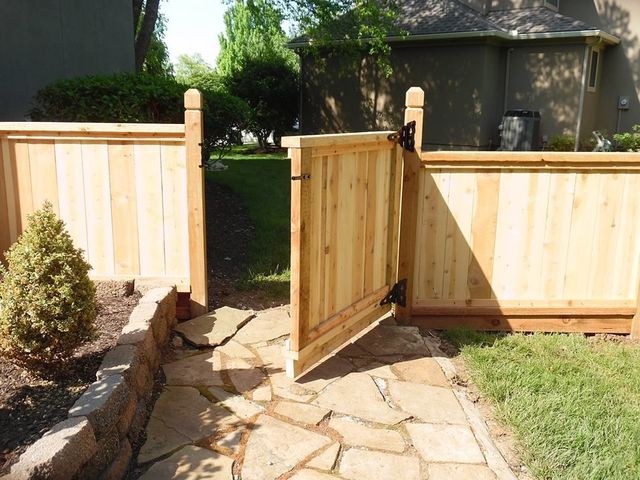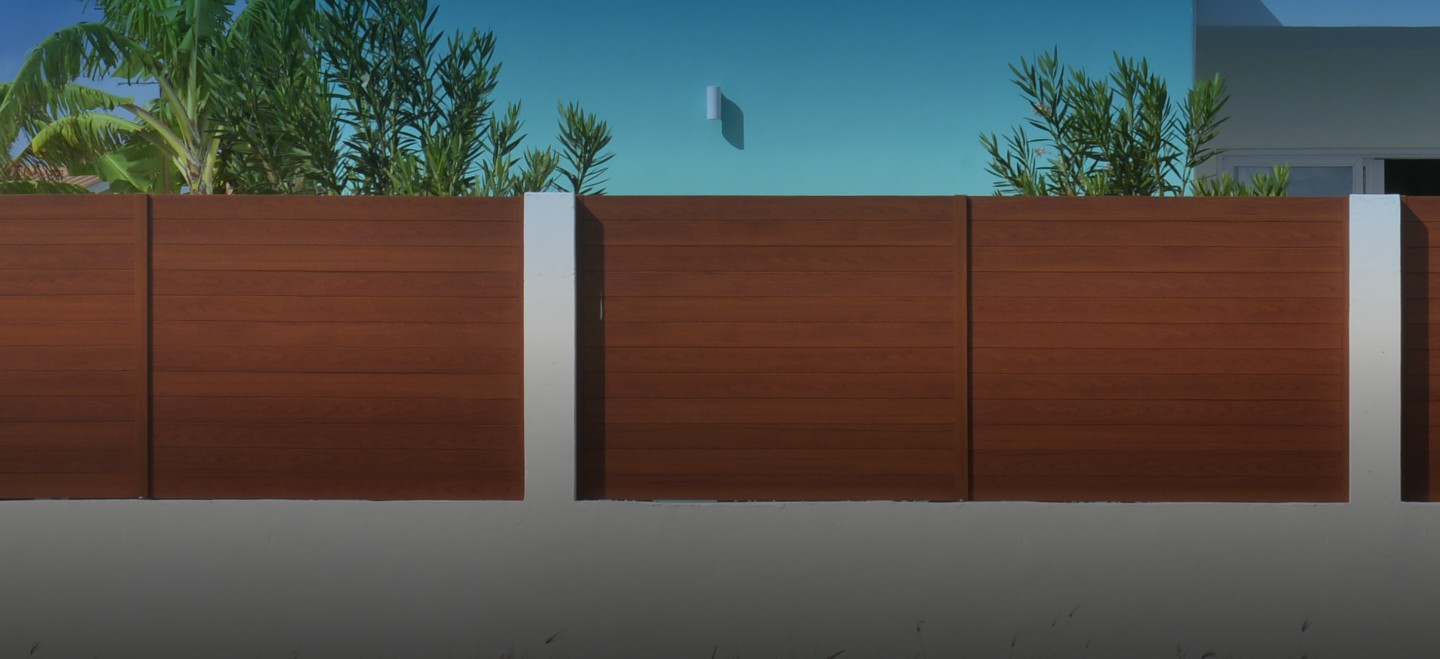All Categories
Featured
Selecting the right fence product for your home is a substantial choice, and each option features its own collection of challenges and advantages. Timber, plastic, and aluminum are amongst one of the most prominent materials for both industrial and residential secure fencing. Below's a failure of the advantages and disadvantages of each to help you determine which is best for your needs.
Timber Fence. Pros:
Aesthetic Allure: Timber supplies an ageless, all-natural look that matches virtually any type of design of home. It can be repainted or stained in a large range of colors, permitting full personalization. Whether you're going for a rustic, country-style look or an extra polished and sleek appearance, wood is flexible.
Cost-efficient: Normally, wood fences are just one of one of the most economical choices when it involves upfront prices. It's a wonderful alternative for those on a spending plan that want a top quality fencing without a high cost.
![]()
Modification: Timber can be conveniently adapted to fit any type of form or dimension. You can choose from various designs such as privacy, picket, or ranch-style fences. It's additionally very easy to modify, fix, or change components if necessary.
Cons:
Maintenance: Wood fences call for regular maintenance. They must be discolored or painted periodically to avoid rot, insect, or bending invasion. Without upkeep, wood can wear away much faster, specifically in damp or damp environments.
Vulnerability to Damage: Wood is susceptible to harm from bugs, such as termites, and weather, like high winds, rain, or snow. With time, direct exposure to these elements can trigger the wood to split, splinter, or warp.
Much Shorter Life expectancy: While timber fences can last for several years, they typically have a much shorter lifespan compared to plastic or aluminum, specifically if not maintained routinely.
Plastic Fence. Pros:
Reduced Maintenance: Among one of the most attractive features of vinyl fences is that they require little to no upkeep. Unlike timber, plastic doesn't need to be painted or discolored. It's resistant to fading, cracking, and warping, making it optimal for those that want an easy fencing.
Sturdiness: Plastic fencings are incredibly sturdy and can withstand extreme weather condition conditions, including extreme warm, hefty rainfall, or snow. They're also resistant to insects like termites, which can destroy wood fences.
Long Life expectancy: Plastic fencings can last for 20-30 years or even more with minimal upkeep. Lots of makers provide warranties, offering satisfaction and further improving the worth of your investment.
![]()
Variety of Styles: Offered in a variety of textures, colors, and styles, vinyl fences can mimic the appearance of timber but without the maintenance. They are readily available in vogue like personal privacy, picket, and decorative, making them highly personalized.
Disadvantages:
Higher Preliminary Price: The ahead of time cost of vinyl fence is normally more than wood, making it much less economical for some. Its longevity and low upkeep make it a worthwhile financial investment in the lengthy run.
Brittle in Cold Weather condition: In chillier climates, vinyl can end up being breakable gradually, that makes it a lot more susceptible to fracturing if subjected to influence. This can be an issue in areas with extreme winters.
Restricted Modification: While plastic is available in a variety of colors and styles, it's not as adjustable as wood. Plastic might not be the ideal choice. if you have a very details vision in mind.
Light Weight Aluminum Fence. Pros:
Low Maintenance: Light weight aluminum is another material that calls for really little maintenance. Unlike wood, it does not corrosion, corrode, or discolor. This makes it ideal for environments with severe weather condition or coastal areas where saltwater could create corrosion.
Longevity: Aluminum fences are recognized for their toughness and long lifespan. They can withstand extreme weather, and unlike timber or plastic, they are immune to bugs and won't weaken in time.
![]()
Aesthetic Appeal: Aluminum fences offer a streamlined, classy appearance and are commonly used for decorative purposes. They are available in different styles and finishes and can improve the total aesthetic allure of your residential or commercial property.
Safety And Security: Aluminum is a tough product, making it an excellent option for giving safety and security around your home. It's usually made use of for property protection fencing in addition to for pool rooms.
Cons:
Price: Aluminum fencings are usually a lot more costly than wood and occasionally even vinyl, specifically when choosing ornamental or customized designs. The first cost might be a deterrent for some homeowner.
Less Privacy: One of the disadvantages of light weight aluminum is that it usually supplies less personal privacy compared to timber or vinyl. The gaps between the slats or bars can be wide, which allows individuals to translucent the fence. This might not be the best choice. if privacy is essential to you.
Denting: While light weight aluminum is resilient, it is susceptible to denting from hefty effects, such as auto mishaps or vandalism. While it won't rust, a dent can compromise its appearance and stability.
Which Material Should You Choose? The decision in between aluminum, wood, and vinyl fence comes down to your spending plan, the amount of maintenance you're willing to take care of, and the certain requirements of your residential property. If you like a natural, adjustable appearance and are ready to maintain it, timber might be the method to go.
Consider your property's climate, the level of personal privacy or security you require, and the lasting financial investment you want to make. Whichever product you pick, each deals distinct advantages that can enhance your home or company while supplying performance and design.
Timber Fence. Pros:
Aesthetic Allure: Timber supplies an ageless, all-natural look that matches virtually any type of design of home. It can be repainted or stained in a large range of colors, permitting full personalization. Whether you're going for a rustic, country-style look or an extra polished and sleek appearance, wood is flexible.
Cost-efficient: Normally, wood fences are just one of one of the most economical choices when it involves upfront prices. It's a wonderful alternative for those on a spending plan that want a top quality fencing without a high cost.

Modification: Timber can be conveniently adapted to fit any type of form or dimension. You can choose from various designs such as privacy, picket, or ranch-style fences. It's additionally very easy to modify, fix, or change components if necessary.
Cons:
Maintenance: Wood fences call for regular maintenance. They must be discolored or painted periodically to avoid rot, insect, or bending invasion. Without upkeep, wood can wear away much faster, specifically in damp or damp environments.
Vulnerability to Damage: Wood is susceptible to harm from bugs, such as termites, and weather, like high winds, rain, or snow. With time, direct exposure to these elements can trigger the wood to split, splinter, or warp.
Much Shorter Life expectancy: While timber fences can last for several years, they typically have a much shorter lifespan compared to plastic or aluminum, specifically if not maintained routinely.
Plastic Fence. Pros:
Reduced Maintenance: Among one of the most attractive features of vinyl fences is that they require little to no upkeep. Unlike timber, plastic doesn't need to be painted or discolored. It's resistant to fading, cracking, and warping, making it optimal for those that want an easy fencing.
Sturdiness: Plastic fencings are incredibly sturdy and can withstand extreme weather condition conditions, including extreme warm, hefty rainfall, or snow. They're also resistant to insects like termites, which can destroy wood fences.
Long Life expectancy: Plastic fencings can last for 20-30 years or even more with minimal upkeep. Lots of makers provide warranties, offering satisfaction and further improving the worth of your investment.

Variety of Styles: Offered in a variety of textures, colors, and styles, vinyl fences can mimic the appearance of timber but without the maintenance. They are readily available in vogue like personal privacy, picket, and decorative, making them highly personalized.
Disadvantages:
Higher Preliminary Price: The ahead of time cost of vinyl fence is normally more than wood, making it much less economical for some. Its longevity and low upkeep make it a worthwhile financial investment in the lengthy run.
Brittle in Cold Weather condition: In chillier climates, vinyl can end up being breakable gradually, that makes it a lot more susceptible to fracturing if subjected to influence. This can be an issue in areas with extreme winters.
Restricted Modification: While plastic is available in a variety of colors and styles, it's not as adjustable as wood. Plastic might not be the ideal choice. if you have a very details vision in mind.
Light Weight Aluminum Fence. Pros:
Low Maintenance: Light weight aluminum is another material that calls for really little maintenance. Unlike wood, it does not corrosion, corrode, or discolor. This makes it ideal for environments with severe weather condition or coastal areas where saltwater could create corrosion.
Longevity: Aluminum fences are recognized for their toughness and long lifespan. They can withstand extreme weather, and unlike timber or plastic, they are immune to bugs and won't weaken in time.

Aesthetic Appeal: Aluminum fences offer a streamlined, classy appearance and are commonly used for decorative purposes. They are available in different styles and finishes and can improve the total aesthetic allure of your residential or commercial property.
Safety And Security: Aluminum is a tough product, making it an excellent option for giving safety and security around your home. It's usually made use of for property protection fencing in addition to for pool rooms.
Cons:
Price: Aluminum fencings are usually a lot more costly than wood and occasionally even vinyl, specifically when choosing ornamental or customized designs. The first cost might be a deterrent for some homeowner.
Less Privacy: One of the disadvantages of light weight aluminum is that it usually supplies less personal privacy compared to timber or vinyl. The gaps between the slats or bars can be wide, which allows individuals to translucent the fence. This might not be the best choice. if privacy is essential to you.
Denting: While light weight aluminum is resilient, it is susceptible to denting from hefty effects, such as auto mishaps or vandalism. While it won't rust, a dent can compromise its appearance and stability.
Which Material Should You Choose? The decision in between aluminum, wood, and vinyl fence comes down to your spending plan, the amount of maintenance you're willing to take care of, and the certain requirements of your residential property. If you like a natural, adjustable appearance and are ready to maintain it, timber might be the method to go.
Consider your property's climate, the level of personal privacy or security you require, and the lasting financial investment you want to make. Whichever product you pick, each deals distinct advantages that can enhance your home or company while supplying performance and design.
Latest Posts
Specialist Commercial Roofing Solutions in North Platte, Nebraska
Published en
2 min read
Find Affordable Auto Repairs with Montclare’s Limited-Time Service Specials
Published en
1 min read
Boost Your Home's Exterior with Weathercraft's Home siding Solutions
Published en
1 min read
More
Latest Posts
Specialist Commercial Roofing Solutions in North Platte, Nebraska
Published May 27, 25
2 min read
Find Affordable Auto Repairs with Montclare’s Limited-Time Service Specials
Published May 26, 25
1 min read
Boost Your Home's Exterior with Weathercraft's Home siding Solutions
Published May 25, 25
1 min read